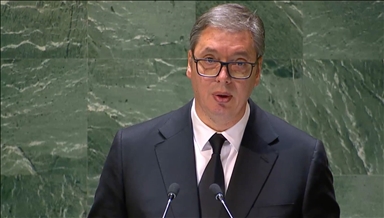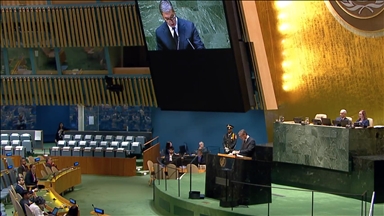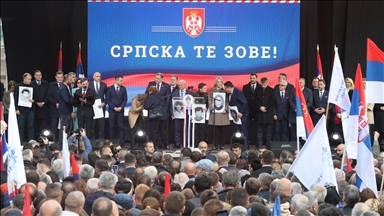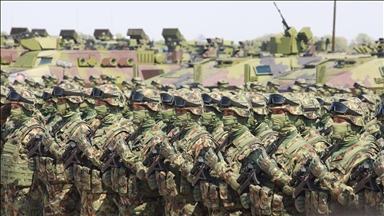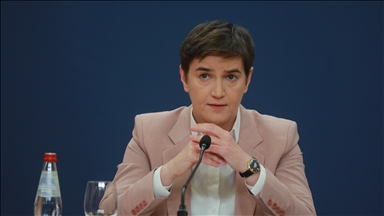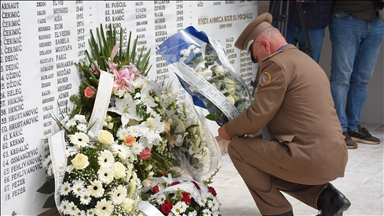ANALYSIS - What is Croatia's President Zoran Milanović up to?
What Milanović’s attitude to Bosnia shows is that a formal social democrat and a right-wing politician have few differences when it comes to Bosnia
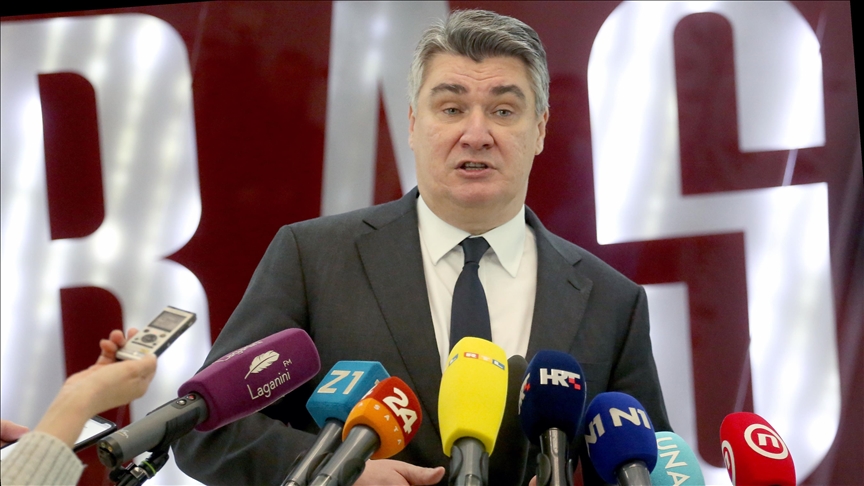
The author is an associate professor at the Faculty of Political Science at the University of Sarajevo.
ISTANBUL
When he was elected as Croatia’s president in early January 2020, Zoran Milanović’s victory was a sigh of relief among many citizens of Bosnia. Milanović was a candidate of the Social Democratic Party of Croatia and had just defeated Kolinda Grabar-Kitarović of the Croatian Democratic Union, who had steered the country’s politics to the extreme right. The former president had a penchant for outlandish and scandalous statements on Bosnia and had presided over deteriorating relations between the two states. Grabar-Kitarović’s foreign policy boiled down to meddling in Bosnia’s internal affairs and portraying Bosniaks as radicalized. In fact, so frequent was Grabar-Kitarović’s meddling that many Bosnians were happy to see her defeated by a social democrat whose electoral victory seemed to open a new chapter in inter-state relations.
Now, slightly over two years later, Milanović has proven himself a major disappointment. Not only did he continue Grabar-Kitarović’s policy of interfering in Bosnia’s internal affairs, but he is doing so openly, routinely and more aggressively than was the case with his predecessor. Many analysts and observers in Bosnia are wondering what is happening to Croatia’s president.
Election legislation reform
Milanović is seeking to exert pressure on Bosnia and, particularly Bosniak politicians, to amend election legislation that would, in essence, further divide the country and institutionalize segregation in Bosnia. Croatia’s president is supporting the leader of Bosnia’s Croat Democratic Union Dragan Čović, in pushing for election law reform that would all but guarantee Čović a seat in the country’s three-member Presidency. Rather than progressing towards a civic-based political system in line with EU principles, the election legislation reform supported by Čović would encourage ethnic division and consolidate Čović's control over the Federation and state-level politics. While Čović managed to frame election law reform as the most pressing issue even among some international officials, Bosnia’s elections have been announced and are scheduled to take place in October this year in accordance with the existing legislation.
Milanović’s pressure
Aware that elections are set to take place, Milanović’s meddling in Bosnia has now reached absurd proportions. In March, he called into question the legitimacy of the elections. He has now indicated a plan to hold a meeting of his country’s National Security Council to discuss the upcoming elections in Bosnia later this year.
Almost two weeks ago, Milanović stated that he would veto Finland’s and Sweden’s NATO accession unless there was a change in Bosnia’s election legislation. Opinions are now ranging from those that Milanović is a pro-Russia actor who seeks to block NATO expansion to those that he is running out of pressure tactics in Bosnia. Still, this linkage is rather benign compared to the long list of his controversial statements.
Milanović’s racist statements
One of his most insulting remarks was back in 2016 when Milanović was recorded as saying that Bosnia is not really a country but a “big s..it.” Then came his infamous racist statement that Bosnia needed “first a soap, and then a perfume.” Last December, the president minimized and relativized the genocide in Srebrenica by claiming that the crime had “elements of genocide.” He thereby ignored verdicts handed down by the International Criminal Tribunal for former Yugoslavia and the International Court of Justice, which affirmed the genocide.
In April this year, he declared that Bosnia can become a civic state only after joining the EU --meaning that it is still a long way ahead. Then, at the end of the month, he declared that the siege of Sarajevo was not lifted by NATO but by Croatia’s army. This statement has no basis in historical facts about the war in Bosnia.
In early May, Milanović stated that a Bosnian Croat third entity -- essentially a Bosnian Croat Republika Srpska -- would be an extreme option that he would support if things evolved in that direction.
Milanović’s public appearances now rarely go by without a controversial and fact-free statement on Bosnia. His interference in Bosnia is so routine that many have wondered what exactly the president is doing in his day job as the top elected official of Croatia besides meddling in his next-door neighbor.
Croatia’s president has shown an intention to intervene in a neighboring country in a fashion utterly unacceptable in international relations. Milanović’s approach is a textbook example of what an EU and a NATO member state’s leader is not supposed to do.
What Milanović’s attitude to Bosnia shows is that a formal social democrat such as the current president of Croatia and a right-wing politician like Kolinda Grabar-Kitarović have few differences when it comes to Bosnia unfortunately.
*Opinions expressed in this article are the author’s own and do not necessarily reflect the editorial policy of Anadolu Agency.
Anadolu Agency website contains only a portion of the news stories offered to subscribers in the AA News Broadcasting System (HAS), and in summarized form. Please contact us for subscription options.


